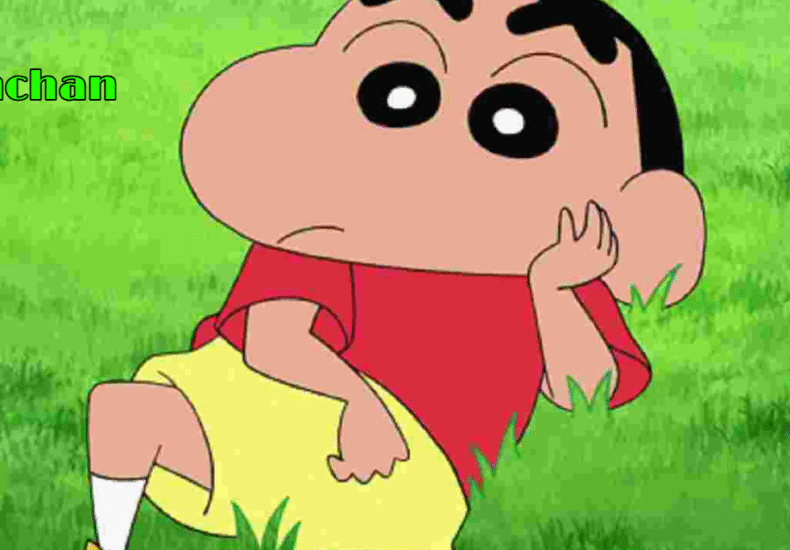
Shinchan: Is This Cartoon Movie is a Real Story?
For more than twenty years “Shinchan” has been one of the most beloved and funny cartoons among youngsters across the world. The adorable 5-year old Shinnosuke “Shin” Nohara, with his hilarious expressions, hilarious pranks and sly logic has been a source of laughter for millions. Over many years a perplexing query has been asked on the internet -Is Shinchan the real deal? Did this jolly, fun boy ever exist?
Let’s look into the facts that underlie this popular claim, and find out the truth behind it and debunk myths.
Origin of Shinchan
Crayon Shin-chan (Japanese: the kureyonshinchiyan) is an Japanese Manga and Anime series developed by Yoshito Usui. The manga first came out in 1990 in the magazine the Weekly Manga Action and was later turned into an animated series during 1992. TV Asahi.
The story centers on Shinchan Nohara, a 5-year-old boy living in Kasukabe, Japan, with his parents Hiroshi as well as Misae Nohara, their little sister Himawari along with their beloved dog Shiro. The show is humorously depicts daily family life, as well as Shinchan’s hilarious mistakes at school, home and at play with his friends.
The Viral “Real Story” Rumor
Many social media posts as well as YouTube videos have been circulating the tragic tale in which it is claimed Shinchan was inspired by a real child. Shinchan is influenced by a real-life child who was killed through an accident. According to the popular urban legend:
- Shinchan was an adaptation of a real-life boy called Shinnosuke Nohara who was killed in an car crash when he tried to help his little sister Himawari.
- The mother of the boy, Misae is devastated over the death of her son of her son and began sketching pictures of her son. This later inspired manga creator Yoshito Usui.
Although the story is a touchy one and is widely shared on social media but there’s no evidence to support it.
Fact Check: Is Shinchan Based on a Real Story?
The truth is the truth is — Shinchan isn’t inspired by a real story or even real people. The characters and their world are all fictional, designed in manga by artist Yoshito Usui in the interest of amusement and fun.
Usui himself has never claimed that Shinchan was the result of a real child. Actually, he stated in interviews that the character was influenced by the everyday lives of Japanese families and bringing exaggerated humorous situations.
“The “tragic backstory” circulating online is a fan-made idea that was created several years after the release of the show. It’s an internet-based creepypasta (a fiction-based horror story shared online) and is not an authentic or verified source story.
The Real Inspiration Behind Shinchan
Although Shinchan isn’t an actual person, the character is a reflection of the actual Japanese children’s behaviorplayful, curious and often humiliating for the parents.
Yoshito Usui’s mission was to develop a person that confronts social norms in a humorous and relatable manner. Shinchan’s reckless behavior and his witty remarks and his innocence reflect the way children behave without filters. It’s something parents can all understand.
The show’s humor subtilly criticizes Japanese family lifestyle, social behaviour and educational systems which makes it popular for adults as well.
A Tribute to the Creator
Unfortunately, the designer Yoshito Usui died at the age of 2009 during a hike accident. Following his death, fans from all over the globe mourned deeply. The show continued due to its immense success and its cultural impact. The show is still on air providing joy to children and adults.
Final Verdict
So does it mean that Shinchan the real deal? It’s not. Shinchan’s story Shinchan can be described as a fictional story written by Yoshito Usui. It is designed to entertain the family and comedy.
Shinchan’s emotional tale of “death” is just an online myth and not a real occasion. Shinchan’s appeal is in the way he makes real his world is -his innocence, wit and the comfort of his family.
In a nutshell, Shinchan may not be real, but his smile as well as his lessons and fun amusement are as authentic as they could beand make him a timeless image of joy and happiness for children all over the globe.
You may also like
Archives
Calendar
| M | T | W | T | F | S | S |
|---|---|---|---|---|---|---|
| 1 | 2 | 3 | 4 | |||
| 5 | 6 | 7 | 8 | 9 | 10 | 11 |
| 12 | 13 | 14 | 15 | 16 | 17 | 18 |
| 19 | 20 | 21 | 22 | 23 | 24 | 25 |
| 26 | 27 | 28 | 29 | 30 | 31 | |

Leave a Reply